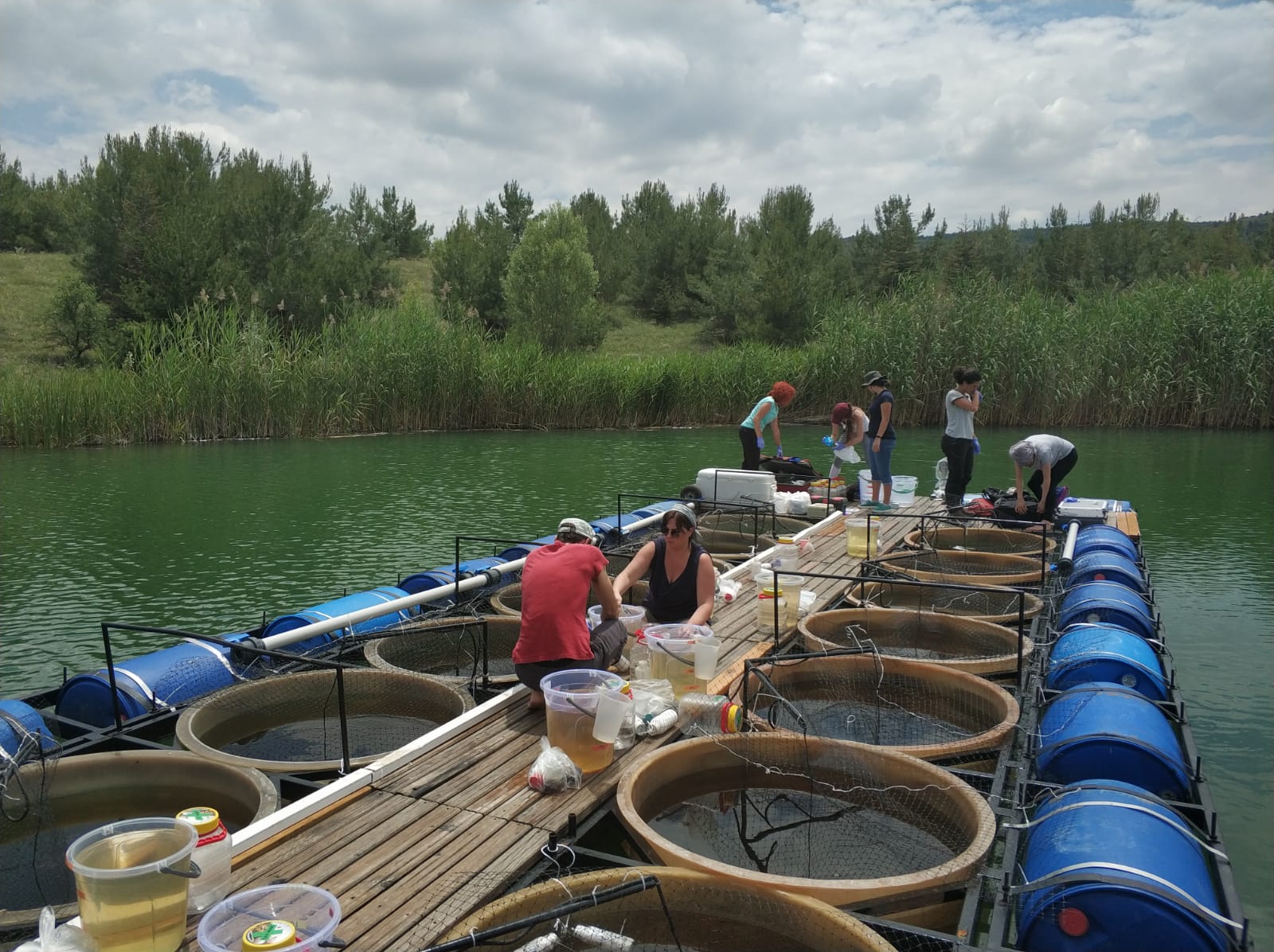AQUACOSM
 AQUACOSM (EU-732065): the EU-network connecting freshwater and marine large experimental research infrastructures
AQUACOSM (EU-732065): the EU-network connecting freshwater and marine large experimental research infrastructures
Rivers, lakes, estuaries and the open ocean are connected and it's becoming evident that ecosystem processes act on many scales, including global. Despite this, aquatic research is still divided in marine and freshwater sciences, with separate funding sources, and experimental science is often conducted at single sites without international coordination. To challenge these problems, the FvB-IGB-lead project AQUACOSM is funded by the first international call (EU H2020-INFRAIA) to coordinate research, develop common best practices and open both freshwater and marine large-scale research infrastructures (mesocosms) for international cross-discipline participation.
By experimentally enclosing large volumes (1-1000 m3) of natural water, in so-called mesocosms, we can measure the separate effects of multiple stressors on whole ecosystems over weeks to years. This is presently the most realistic method to test how future climate and pollution may impact aquatic ecosystems, and thereby to compare with predictions from long-time data series and models. All these approaches are then combined to get the understanding necessary to manage our future water effectively. However, as the effects of different stressors may vary widely among ecosystems and seasons etc., they need to be investigated in comparable mesocosm experiments in different areas and with best possible methods. As these challenges have not been solved, the AQUACOSM project will fill a global void by forging an integrated freshwater and marine research infrastructure network.
AQUACOSM builds on the marine EU project MESOAQUA (2009-2012). Both networks are lead by Dr. Jens Nejstgaard, with Dr. Stella Berger coordinating the Transnational Access to the facilities. While MESOAQUA involved 6 marine partners, AQUACOSM greatly enhances this network. It is expanded with 2 small enterprises, 10 freshwater (rivers and lakes), 2 brackish and 2 benthic marine facilities, and involves 21 partners and over 50 scientists throughout Europe.
AQUACOSM funded by European Commission, Directorate- General for Research & Innıvation with budget 9,999,807 EURO, duration between 01/2017- 12/2020. Middle East Technical University (METU) is one of the 21 partners of AQUACOSM. The Limnology Laboratory operating the METU Mesocosm System (Figure 1) is equipped with sampling gear and analytical instruments (e.g. auto-analyser, various microscopes) and a walk-in climate room. Prof. Dr. Meryem Beklioğlu leads conducted AQUACOSM experiments at Limnology Laboratory in METU.
In the first year of the Project (June- August 2018), mesocosm experiment was performed to evaluate negative effects of microplastic in shallow freshwater lakes by exposing water and sediment of mesocosms simultaneously to the environmentally relevant mixture of various microplastic polymers. Second year (June-July,2019), mesocosm system was used to investigate the lake system responses to dissolved organic carbon (DOC) pulses from terresterial sources as a part of joint mesocosm experimenrs of Aquacosm(-JOMEX) which will demonstrate the ability of the Aquacosm consortium to perform joint directed experiments along gradients from the Arctic to the Mediterranean and from freshwater to full marine systems. Finally in 2020, it is planned to perform mesocosm experiment for determining the effects of high DOC and warming on the microbial and planktonic food web structure and efficiency. Changes in bacterial, phytoplankton and zooplankton community function and community composition will be quantified. The resistance of the different communities to the DOC pulse and warming will be characterized.
